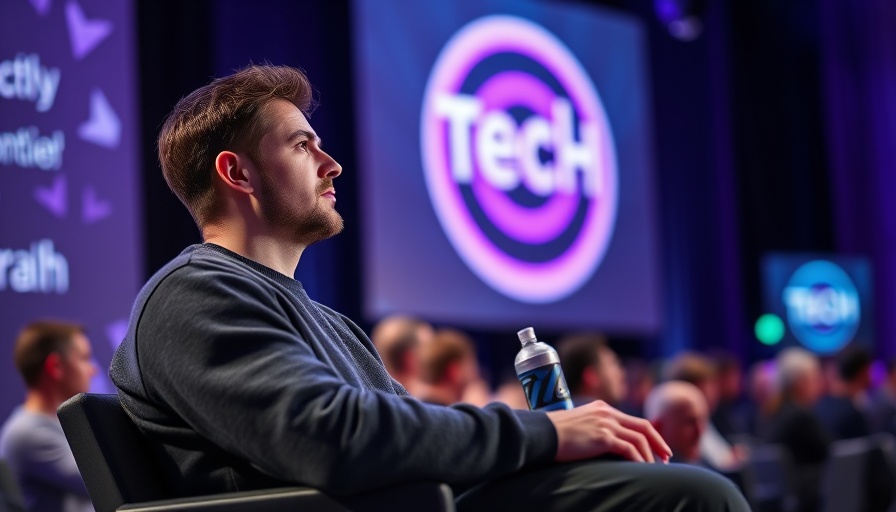
OpenAI's Strategic Move: A Game Changer for AI Pricing
On August 8, 2025, OpenAI garnered significant attention in the tech world with the launch of GPT-5, its latest artificial intelligence model, priced competitively and designed to disrupt the current landscape of AI solutions. CEO Sam Altman claimed this new model as potentially 'the best in the world,' a bold assertion that invites scrutiny as tech enthusiasts and developers assess its merits against established benchmarks from competitors like Anthropic and Google DeepMind.
How GPT-5 Compares to Competitors
The launch of GPT-5 has intensified the competitive dynamics among AI developers. Priced at $1.25 per million tokens for input and $10 per million for output, GPT-5's pricing structure is significantly lower than many alternatives. For instance, Anthropic's Claude Opus 4.1 charges $15 per million input tokens and a whopping $75 per million for output. This pricing strategy places GPT-5 in a firm position to captivate a large portion of the market, particularly among developers looking for cost-effective solutions.
Why Pricing Matters in AI Development
The choice of price points not only influences sales but also shapes user perceptions of value and performance. In the competitive realm of AI, developers are often locked into ecosystems based on cost-effectiveness. As early adopters of GPT-5 have pointed out, the low pricing paired with commendable performance makes it an attractive alternative. Simon Willison, a developer, remarked that the pricing was 'aggressively competitive' compared to other providers—indicating the strategic importance of pricing in attracting a user base.
Open Source Models: A Shift in Strategy?
OpenAI recently rolled out two open-source models just days before the GPT-5 release, showcasing a commitment to democratizing AI access. This move is noteworthy as it suggests OpenAI is not only vying for profit but also positioning itself as a leader in innovation and accessibility, echoing ongoing conversations in the tech community about the implications of open-source technologies.
The Future of AI Models: Predictions and Consequences
As OpenAI's pricing strategy unfolds, it sets the stage for potential price wars within the AI market. Such dynamics can spur rapid innovation among competitors, as companies may feel pressured to cut prices or enhance their offerings to retain users. This competitive atmosphere could ultimately benefit consumers who would enjoy lower costs and improved technology options.
Understanding Developer Preferences: What Makes GPT-5 Appealing?
Analysis of the reaction from developers reveals that performance capabilities play a significant role in decision-making. Coders particularly value versatility in AI models for various tasks ranging from coding assistance to creative writing. The early feedback from developers indicates that GPT-5 not only meets but in some aspects, exceeds their performance expectations compared to established competitors. This adaptability enhances its appeal for diverse use cases.
The Human Element: Emotional and Practical Implications
In an industry marked by rapid changes and competition, the emotional responses from developers and users alike cannot be ignored. Many view the advent of competitively priced AI models not just as a business step but as a turning point in how AI can be integrated into everyday workflows, making access to sophisticated technology more feasible. The anticipation surrounding GPT-5 echoes sentiments of hope for a brighter future in collaborative technology development.
Potential Challenges Ahead for OpenAI
While the excitement about GPT-5 is palpable, OpenAI will have to navigate several challenges moving forward. These include sustaining the quality of their offerings while managing cost, keeping up with continual advancements from competitors, and addressing any concerns over ethical implications related to AI technologies. As the landscape evolves, how OpenAI responds will determine its long-term viability and leadership in the AI sector.
Final Thoughts: What Happens Next?
As the launch of GPT-5 captures the attention of the tech community, the implications of OpenAI's pricing strategy will likely resonate throughout the industry. Developers and companies alike must stay vigilant, ready to adapt to the rapidly changing environment. With ongoing innovation and fierce competition, the eventual winners will be informed, strategic thinkers who can navigate these exciting yet challenging tides.
 Add Row
Add Row  Add
Add 




Write A Comment